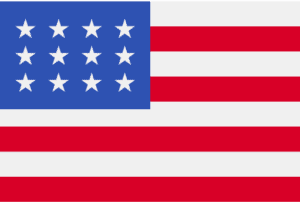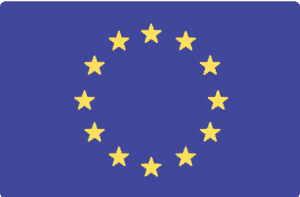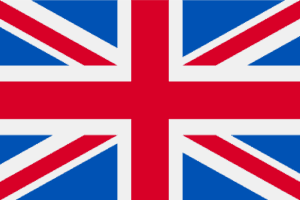Welcome to Watson’s Monthly! The Monthly is a document that gives you roundup of the major stories and developments that happened over the course of January.
This will give you a different view of how things developed over the month and will really help your understanding and recall of the events as they happened.
IN BIG PICTURE NEWS…
 In the US – the US House of Representatives has approved an outline for Joe Biden’s massive $3.5tn domestic spending package, the detail of which is to be fleshed out later this year. It follows the $1.9tn stimulus package he signed in March and is a major part of his greater economic plan.
In the US – the US House of Representatives has approved an outline for Joe Biden’s massive $3.5tn domestic spending package, the detail of which is to be fleshed out later this year. It follows the $1.9tn stimulus package he signed in March and is a major part of his greater economic plan.
 In Asia – South Korea raised interest rates from 0.5% to 0.75% in order to rein in rising household debt and property prices.
In Asia – South Korea raised interest rates from 0.5% to 0.75% in order to rein in rising household debt and property prices.
 In Europe – economic recovery in the Eurozone stuttered as fear of the Delta variant gripped the Continent.
In Europe – economic recovery in the Eurozone stuttered as fear of the Delta variant gripped the Continent.
 In the UK – the Bank of England got some breathing space this month as it increased its year-end inflation forecasts one more – this time to 4% – but the pressure to potentially raise interest rates eased because of falling food prices and the return of summer fashion sales. Hedge fund manager Crispin Odey created a bit of a stir as he said that the Bank of England would “never” put up interest rates because it had borrowed so much money that increasing rates would just increase the price of servicing its own debt!
In the UK – the Bank of England got some breathing space this month as it increased its year-end inflation forecasts one more – this time to 4% – but the pressure to potentially raise interest rates eased because of falling food prices and the return of summer fashion sales. Hedge fund manager Crispin Odey created a bit of a stir as he said that the Bank of England would “never” put up interest rates because it had borrowed so much money that increasing rates would just increase the price of servicing its own debt!
 In commodities – Aluminium prices continue to rise and mining company BHP announced it was going to shift its stock market listing from London to Sydney.
In commodities – Aluminium prices continue to rise and mining company BHP announced it was going to shift its stock market listing from London to Sydney.
 In supply chains – a record surge in Covid cases in Vietnam forced many factories to close down. Vietnam produces a great deal of clothing and footwear for global brands including Adidas and Nike and the latest shutdowns have, once again, highlighted a heavy reliance on Asia in terms of manufacturing. Supply chain issues persist, though, in the UK and Germany. It’s hurting Germany more, though, because its economy is more exposed to manufacturing. There’s still a shortage of lorry drivers, so M&S and John Lewis are among those offering extra incentives like pay rises and joining bonuses.
In supply chains – a record surge in Covid cases in Vietnam forced many factories to close down. Vietnam produces a great deal of clothing and footwear for global brands including Adidas and Nike and the latest shutdowns have, once again, highlighted a heavy reliance on Asia in terms of manufacturing. Supply chain issues persist, though, in the UK and Germany. It’s hurting Germany more, though, because its economy is more exposed to manufacturing. There’s still a shortage of lorry drivers, so M&S and John Lewis are among those offering extra incentives like pay rises and joining bonuses.
 *** COVID POLICY/NEWS TIMELINE ***
*** COVID POLICY/NEWS TIMELINE ***
ASIA, CHINA – Aug 4th China restricts domestic travel to stop spread of the virus.
ASIA, AUSTRALIA – Aug 22nd Australia imposes strict lockdown restrictions until at least 70% of the country is fully vaccinated.
EUROPE, GERMANY – Aug 1st huge numbers of protesters gather in Berlin to protest against Germany’s Covid restrictions.
EUROPE, FRANCE – Aug 9th France’s controversial health pass comes into effect after much wrangling.
UK – Aug 31st UK government announces plans to bring in vaccine passports for nightclubs and other such venues from the end of the September.
In TECH NEWS…
 The Great Crackdown of China continued and ed-tech companies (like New Oriental and TAL Education) that were hit hard by the new restrictions started to cut jobs. However, it seems that all the teachers are going freelance as parents have been forming “tutoring co-operatives” to get round the new regulations. One consequence of this crackdown on the edu-tech sector is that it could have an outsized impact on youth unemployment as the education sector is a very popular destination for college graduates and the growing online tutoring industry brings in millions of jobs. Given that the unemployment rate for those with college degrees aged 20-24 was 19.3% in June 2020 and that the private tutoring sector accounted for 17% of jobs for recent college grads last year (the highest of ALL industries!) you can see why this could prove to be problematic. Share prices of other Chinese tech companies also weakened as the likes of Tencent, NetEase and Bilibili were sold off sharply by investors who thought they’d be for the chop next by the authorities. Tencent initially responded by tightening existing restrictions on minors playing Honor of Kings but it then went on to work more closely with the regulators to limit minors’ online game time. Meanwhile, the government bought shares in TikTok owner ByteDance.
The Great Crackdown of China continued and ed-tech companies (like New Oriental and TAL Education) that were hit hard by the new restrictions started to cut jobs. However, it seems that all the teachers are going freelance as parents have been forming “tutoring co-operatives” to get round the new regulations. One consequence of this crackdown on the edu-tech sector is that it could have an outsized impact on youth unemployment as the education sector is a very popular destination for college graduates and the growing online tutoring industry brings in millions of jobs. Given that the unemployment rate for those with college degrees aged 20-24 was 19.3% in June 2020 and that the private tutoring sector accounted for 17% of jobs for recent college grads last year (the highest of ALL industries!) you can see why this could prove to be problematic. Share prices of other Chinese tech companies also weakened as the likes of Tencent, NetEase and Bilibili were sold off sharply by investors who thought they’d be for the chop next by the authorities. Tencent initially responded by tightening existing restrictions on minors playing Honor of Kings but it then went on to work more closely with the regulators to limit minors’ online game time. Meanwhile, the government bought shares in TikTok owner ByteDance.
Outside China, Facebook announced the new virtual office app Horizon Workrooms, but it was also hit by a new antitrust suit from the US Federal Trade Commission.
IN AUTOMOTIVE NEWS…
 There were solid performances from Stellantis, GM and Toyota this month, but both VW and Toyota had to make production cuts because of chip shortages and Geely warned of further “uncertainty” as well. The industry deepened its commitment to EVs, which was just as well considering that a survey by EY showed that 41% of those looking to buy a car were considering the purchase of a zero-emissions model and that just over 70% said that they intended to buy within the next 12 months. Meanwhile UK online secondhand car specialist Cazoo put in a strong performance thanks to the red-hot used market being boosted by customers being unable to buy new cars because of the semiconductor shortage. The weakness in new cars sales in the UK was highlighted by the latest figures from the SMMT.
There were solid performances from Stellantis, GM and Toyota this month, but both VW and Toyota had to make production cuts because of chip shortages and Geely warned of further “uncertainty” as well. The industry deepened its commitment to EVs, which was just as well considering that a survey by EY showed that 41% of those looking to buy a car were considering the purchase of a zero-emissions model and that just over 70% said that they intended to buy within the next 12 months. Meanwhile UK online secondhand car specialist Cazoo put in a strong performance thanks to the red-hot used market being boosted by customers being unable to buy new cars because of the semiconductor shortage. The weakness in new cars sales in the UK was highlighted by the latest figures from the SMMT.
It was a tricky month for Tesla as the US road safety body, the National Highway Traffic Safety Administration (NHTSA), launched an investigation into Tesla’s Autopilot system after a series of crashes. Tesla also reported a fire at a major battery installation in Australia that was due to be operational this summer, but this will now be delayed. Such battery fires are incredibly difficult to put out – a few months back, a crashed Tesla Model S took eight firefighters seven hours to put out, using 28,000 gallons of water in the process!
It was also a tricky month for GM as it recalled all 69,000 Chevvy Bolts it sold between 2017 and 2019 following cases of batteries combusting. Clearly, this isn’t the sort of “living on the edge” that car buyers are generally looking for!
In FINANCIALS NEWS…
 Square bought Aussie BNPL giant Afterpay in a $29bn all-share deal, which is likely to shake things up in the world of Buy Now Pay Later (BNPL). Other financial firms also moved to broaden their horizons as Revolut introduced a new feature called Payday, which is basically a payday loan facility and Lloyds Bank announced plans to become a landlord, aiming to provide 50,000 homes for rent. Also, fund management group M&G moved into the world of IFAs by buying Sandringham Financial Partners for an undisclosed sum.
Square bought Aussie BNPL giant Afterpay in a $29bn all-share deal, which is likely to shake things up in the world of Buy Now Pay Later (BNPL). Other financial firms also moved to broaden their horizons as Revolut introduced a new feature called Payday, which is basically a payday loan facility and Lloyds Bank announced plans to become a landlord, aiming to provide 50,000 homes for rent. Also, fund management group M&G moved into the world of IFAs by buying Sandringham Financial Partners for an undisclosed sum.
 Among financial firms that did well under lockdown, Robinhood became its own meme stock as its share price shot up after superstar investor Cathie Wood of Ark Invest took a punt on the trading app as it started offering options trading! On the other hand, Hargreaves Lansdown saw its shares tank as it warned that the pandemic retail investor trading boom wouldn’t last.
Among financial firms that did well under lockdown, Robinhood became its own meme stock as its share price shot up after superstar investor Cathie Wood of Ark Invest took a punt on the trading app as it started offering options trading! On the other hand, Hargreaves Lansdown saw its shares tank as it warned that the pandemic retail investor trading boom wouldn’t last.
 Banks continued to make the headlines as HSBC saw its profits quadruple, Goldman Sachs decided to up its pay for junior bankers and although bankers have been pushing for removing bonus caps post-Brexit to attract more talent, Rishi Sunak was having none of it! UK banks decided to extend their experiment of having multiple banks in one physical branch from the original October deadline. Presumably the idea of this is to continue to cut down on branch numbers while simultaneously providing a physical presence for their customers.
Banks continued to make the headlines as HSBC saw its profits quadruple, Goldman Sachs decided to up its pay for junior bankers and although bankers have been pushing for removing bonus caps post-Brexit to attract more talent, Rishi Sunak was having none of it! UK banks decided to extend their experiment of having multiple banks in one physical branch from the original October deadline. Presumably the idea of this is to continue to cut down on branch numbers while simultaneously providing a physical presence for their customers.
In M&A NEWS…
 Adidas sold Reebok for up to €2.1bn to Authentic Brands, PepsiCo offloaded brands including Tropicana as part of a broader plan to focus on less sugary beverages, Sanofi bought partner Translate Bio because it really wants to explore mRNA tech for vaccines and the latest figures show that UK firms have seen a record number of approaches from foreign firms. Parker Hannifin’s takeover bid for Meggitt illustrates that very point, as does the fact that posh athleisure brand Sweaty Betty was snapped up by American firm Wolverine World Wide (which also owns brands such as Hush Puppies, Merrell, Saucony etc.). Cargill bought Sanderson Farms and Macquarie bought into Southern Water.
Adidas sold Reebok for up to €2.1bn to Authentic Brands, PepsiCo offloaded brands including Tropicana as part of a broader plan to focus on less sugary beverages, Sanofi bought partner Translate Bio because it really wants to explore mRNA tech for vaccines and the latest figures show that UK firms have seen a record number of approaches from foreign firms. Parker Hannifin’s takeover bid for Meggitt illustrates that very point, as does the fact that posh athleisure brand Sweaty Betty was snapped up by American firm Wolverine World Wide (which also owns brands such as Hush Puppies, Merrell, Saucony etc.). Cargill bought Sanderson Farms and Macquarie bought into Southern Water.
In CONSUMER, RETAIL AND LEISURE NEWS…
 The latest figures from research company GfK showed that consumer confidence levels had returned to pre-pandemic levels and the UK jobs market remained buoyant, according to the latest ONS figures. Skills shortages continue to emerge and one of the biggest accountancy firms outside London, Azets, is seeking out retired and older recruits to fill staff shortages.
The latest figures from research company GfK showed that consumer confidence levels had returned to pre-pandemic levels and the UK jobs market remained buoyant, according to the latest ONS figures. Skills shortages continue to emerge and one of the biggest accountancy firms outside London, Azets, is seeking out retired and older recruits to fill staff shortages.
In retail, Amazon became the world’s biggest retailer outside China as its sales overtook those of Walmart – and it announced plans to roll out department stores. This is kind of ironic really, given that it is probably the ultimate online department store that spelled the beginning of the end of existing department stores! Having said that, both Macy’s and Kohl’s announced pretty solid performances. Retail sales lost momentum overall in the US but retailers such as Walmart and Target saw sales strengthen. Walmart said that it will be offering the use of its delivery platform to 3rd parties, which sounds like it could be a nice money-spinner. Morrisons’ management switched from recommending the takeover bid from Fortress to original bidder Clayton, Dubilier & Rice, who upped their original offer.
 There were some interesting developments in the leisure sector this month what with Entain (which owns Ladbrokes and Coral) buying Unikrn, an American esports betting group, DraftKings buying Golden Nugget Online Gaming and both Flutter (owner of Paddy Power, Betfair etc.) and Plus 500 (a spread betting company) announcing their desire to expand in the US.
There were some interesting developments in the leisure sector this month what with Entain (which owns Ladbrokes and Coral) buying Unikrn, an American esports betting group, DraftKings buying Golden Nugget Online Gaming and both Flutter (owner of Paddy Power, Betfair etc.) and Plus 500 (a spread betting company) announcing their desire to expand in the US.
 In aviation-related news, British Airways mooted the possibility of launching a new low-cost short-haul subsidiary and Sir Richard Branson said he was thinking of floating Virgin Atlantic on the London Stock Exchange to shore up its balance sheet.
In aviation-related news, British Airways mooted the possibility of launching a new low-cost short-haul subsidiary and Sir Richard Branson said he was thinking of floating Virgin Atlantic on the London Stock Exchange to shore up its balance sheet.
ELSEWHERE...
 Raleigh, which is one of the world’s oldest bike manufacturers, announced plans to start making e-cargo bikes as demand for alternative “greener” delivery vehicles increases. Talking about bike-related things, Peloton announced that it was going to cut the price of its flagship product – its exercise bike – by $400.
Raleigh, which is one of the world’s oldest bike manufacturers, announced plans to start making e-cargo bikes as demand for alternative “greener” delivery vehicles increases. Talking about bike-related things, Peloton announced that it was going to cut the price of its flagship product – its exercise bike – by $400.
 It was also interesting to see that OnlyFans said that it would ban sexually explicit content in preparation for an upcoming IPO, but then it reversed this decision as it no doubt came to the conclusion that it needed porn more than it needed banks!
It was also interesting to see that OnlyFans said that it would ban sexually explicit content in preparation for an upcoming IPO, but then it reversed this decision as it no doubt came to the conclusion that it needed porn more than it needed banks!







